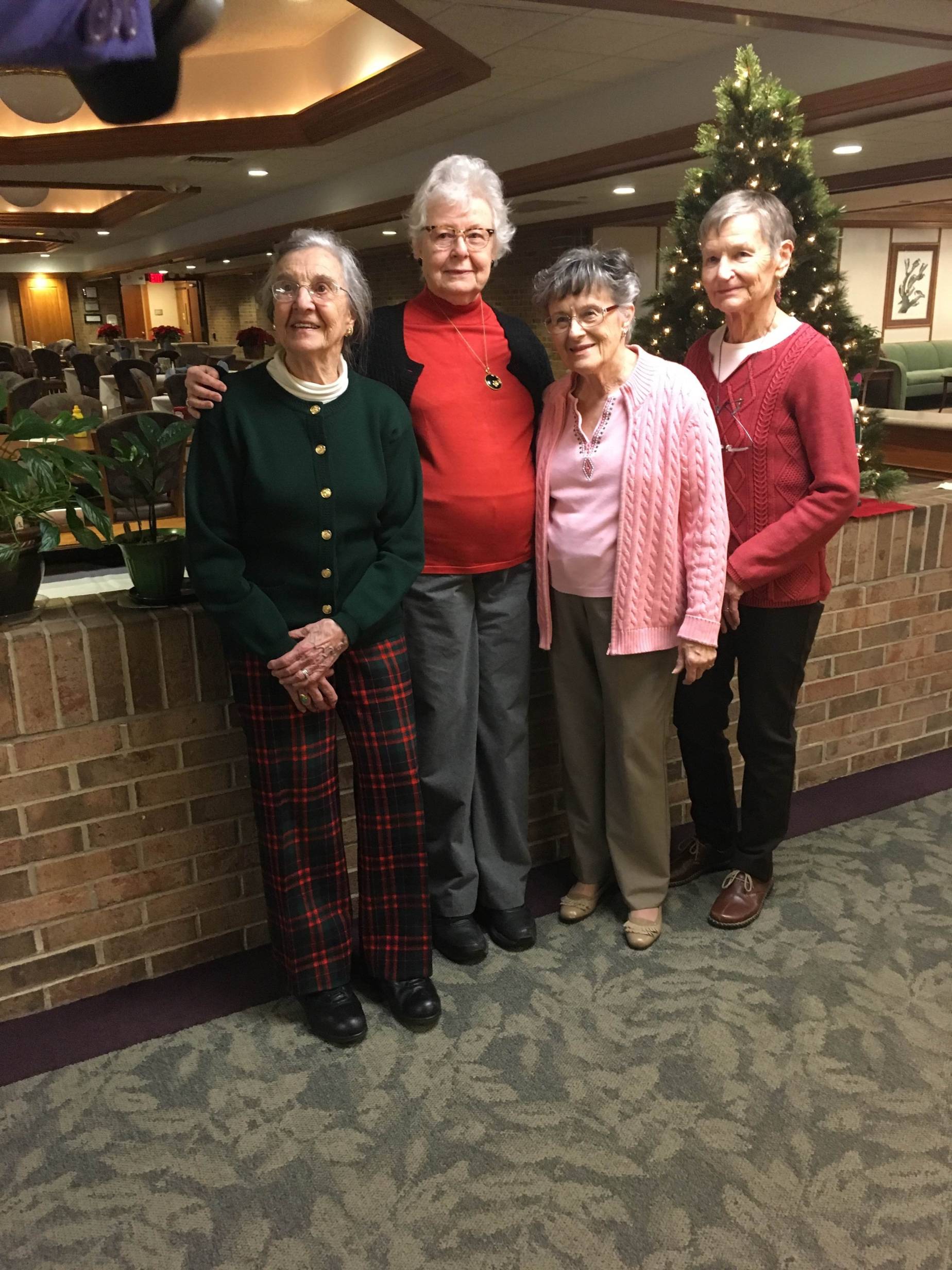This evening, the Champaign County League of Women Voters (LWV) will honor members who have been involved for 50+ years, including four new inductees.
The LWV is a nonpartisan organization that has registered and educated voters in Champaign County for the better part of the century. In addition to monthly meetings, local league members host candidate forums for public office positions. Its members also observe public meetings and sit in on court proceedings to make sure they aren’t biased.
Locally, the LWV has been involved in issues ranging from supporting the improvement of the local judicial system to sustaining continued improvements in parks and recreation in Champaign County. According to Communications Director Kelsey Bourgeois, one of the League’s most important current projects involves advocating for independent voting district mapping in the state of Illinois. “The most recent effort has been going really well,” said Bourgeois. “We’ve been gathering signatures so we can prevent gerrymandering across the state.”
The careers and community involvement of local LWV members span decades. Many of the women being honored this evening achieved incredible professional successes even as they followed their husbands’ careers and raised families.
Here are four of the women who will be honored this evening.

Ruth Fisher
Fisher was born in Berkley, California. She graduated from the University of California in 1943 from a program that combined Sociology, Anthropology, and Economics. She was inspired in her education by her mother, who graduated from medical school in 1903. “My mother felt very strongly that women needed to prepare themselves for public service, not as politicians, but as public servants where they would invest themselves in their community and would make the community a better place to live,” said Fisher.
From UC, Fisher went to graduate school at Columbia, where she earned a graduate degree in Social Work. It was there that she met her husband Ralph, who was working on a degree in Russian History. Ralph was recruited by the University of Illinois, which was building a staff that would educate students in the wake of the Cold War.
Raising her own family prompted Fisher to take interest in the Champaign-Urbana community, particularly the local schools. She also participated in a number of League study groups, acted as a League Observer, served on juries, and took interest in the functions of local government. When her children were all in school, she became a social worker in Champaign and worked there for twenty years.
Fisher believes League’s role is an important one in the community because its members learn and study local issues, which allows them to become better prepared to provide intelligent candidates’ forums that help inform voters as well as develop and provide position papers, observe and understand community meetings, and provide great service to the community.
Maureen McCord
McCord was born in New York City and lived there until 1961, when she joined her husband Jack in Champaign. Jack was an Air Force Staff Judge Advocate at Chanute AFB in Rantoul. McCord practiced law periodically, most comfortably in the areas serving the disadvantaged. During the course of her career, she served on a number of governmental, civic and community boards, and she joined League because its members impressed her. “I particularly liked the study of local and state government,” she said.
McCord numbers the League’s involvement in the local “From Blight to Beauty” Conference, which led to the organization of CCDC (Champaign County Design and Conservation Foundation), and its constant work with various county clerks on voting rights as some of its greatest achievements.
Nancy Morse
Morse grew up in suburban Philadelphia and Port Arthur, Texas. She moved to Champaign-Urbana when her husband joined Carle Clinic in 1967. During her career, she was a food chemist/technologist with General Foods in Hoboken, NJ and Tarrytown, NY. She took time off to raise five children, during which time she volunteered at church, in the children’s schools, and other community sites. At the University of Illinois, she earned a Master’s degree in Child Development.
Morse continued her education at the University of Illinois, though not without setbacks. According to Morse, “In the early 60’s, I had an unfortunate interview at the College of Education and was told that if I ‘just wanted to teach math and science at the elementary level’ I should ‘just go to Eastern.’” She pursues Home Economics instead, after which she taught at Parkland College in the early childhood program and in the Child Development Laboratory at the University of Illinois. She says that the most rewarding aspect of her career was “teaching, supervising, and hopefully inspiring Parkland students who were going to work with young children.”
Morse became involved in a local leave in local League in Maryland. “It was a great group of interesting women who were studying and discussing meaningful topics,” she said, “and it was not about babies or children.” Locally, she has worked on collaborating to create a directory of Champaign County officials.
To Morse, the League’s shining moments include the push for an equal rights amendment and statewide redistricting. “My hope is that our local league will continue to foster participation with University of Illinois students and be a leader in getting Illinois state government out of its cycle of corruption, financial irresponsibility, and disregard for the common good,” she said.
Margaret Stewart
Stewart grew up in California, where she participated in interscholastic debating and in a statewide organization called Junior Statesmen of America, which encouraged high school students to actively participate in the democratic process. She continued that interest in college at a time when, she remembers, “that was difficult as anti-Communist furor and the first rumblings of Sen. Joseph McCarthy were beginning to challenge more liberal discourse and activity.”
Stewart came to Champaign-Urbana in 1959 after a three-year stay in Japan, where her husband, who was in the Air Force, had been stationed at Tachikawa Base near Tokyo. He worked at Chanute AFB in Rantoul as an instructor.
In 1968, because of Stewart’s activities with the local branch of the American Association of University Women, she was asked by the director of the United Community Council to organize and chair a committee to assess services for children and youth in Champaign County. “I accepted the proposal,” said Stewart, “and led the committee in making a report that was used by the Illinois Youth Commission for the 1970 White House Conference on Children and Youth.” Stewart later earned her MSW at the University of Illinois and worked at Family Service of Champaign County for 23 years. “For several years, I did family counseling,” she said. “Then I became manager of the Family Advocacy program, which at various times included First Call of Help, Budget Counseling, the Self-Help Center and Transitional Housing for Homeless Families.”
Stewart learned about the League through the newspaper. In her time with the League, she has edited the newsletter; participated in studies on Urban Renewal, Income Maintenance, and Day Care; and acted an observer for the Champaign Planning Commission.
“Of its many achievements, I think the League should be especially commended for its role in changing housing patterns in the community,” said Stewart. “And also its work in innovating, organizing, and promoting candidates’ debates. This effort was so successful that it led ultimately led to nationwide presidential debates, which are now in the hands of other organizations.”
———
The LWV is always welcoming new members who have an interest in voter education and community service. Its work in 2016 will include special attention to independent mapping and the local school districts.
New members would be joining an incredible group of women, said Bourgeois.
“I am amazed by the things these women have done and lived through,” she said. “They have big shoes to fill.”








